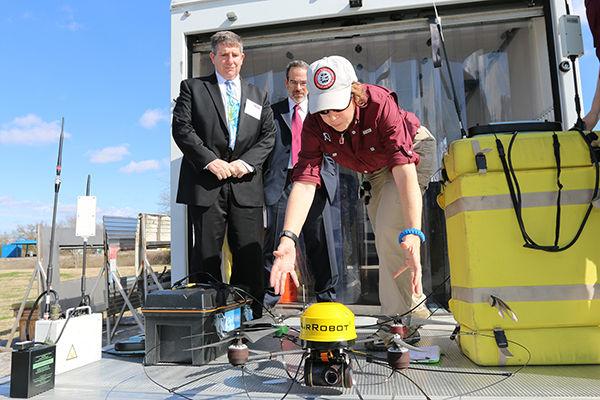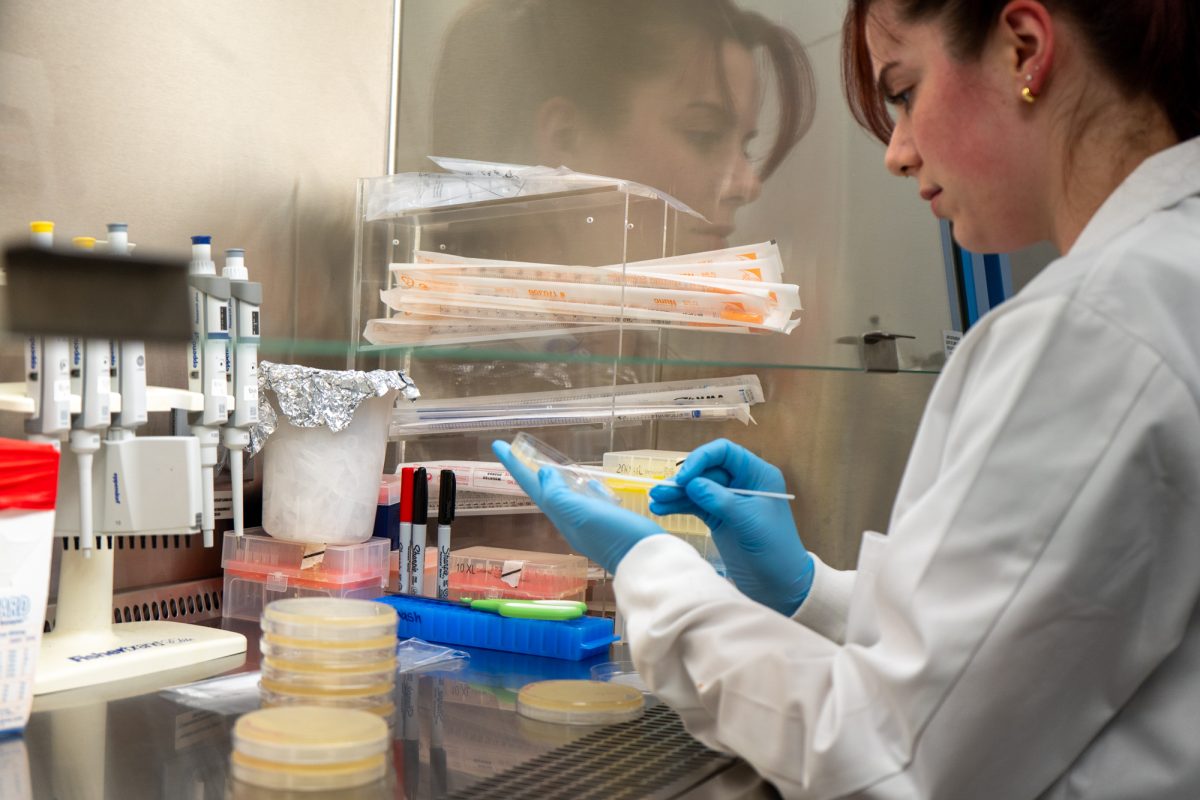The U.S. Army’s approach to scientific research and development is changing, and Texas A&M is one among a number of universities with the opportunity to collaborate on previously military-restricted work.
The Army Research Laboratory will open previously classified laboratories and facilities to Texas A&M Engineering Experiment Station researchers through Open Campus, a new Army initiative that hopes to maintain the Army’s technological edge through industry and academic partnerships.
Dimitris Lagoudas, TEES deputy director and senior associate dean for research in the College of Engineering, said Open Campus will act like an exchange program. It will allow faculty members from Texas A&M to study at Army labs while Texas A&M hosts Army researchers here in College Station. Lagoudas said the partnership presents a great opportunity not only for Texas A&M faculty members but for students, who will have opportunities to spend time with ARL. This partnership has been in the works for about a year, Lagoudas said, but the paperwork was only finalized a few months ago.
“They were very receptive to us because they hold A&M in high regards as a strong research university with strong engineering programs,” Lagoudas said.
The director of ARL, Thomas Russell, visited College Station last week to plan future research projects and inspect A&M’s facilities. Narasimha Reddy, assistant agency director for national and global initiatives for TEES, organized Russell’s visit. Reddy said Russell and ARL came to see if they could interest faculty in their research interests and if collaboration was possible. Reddy said the four main areas of Army research were discussed: information and sensing, maneuvers, lethality and protection and materials.
Although some non-ARL personnel have been allowed into ARL labs in the past, Open Campus will streamline the process and make it much more accessible. Reddy said Open Campus willalso open up Army facilities to researchers who previously had no chance to study there.
“Even new and international faculty, non-citizens, can go and work with them on projects of interest,” Reddy said.
Moble Benedict, an assistant professor in aerospace engineering who worked closely with ARL as a graduate student, is not a U.S. citizen but is a permanent resident. Benedict said it was difficult to work with the Army, who funded his graduate research, because of his lack of citizenship, but that Open Campus should help facilitate similar relationships in the future.
“It’s free exchange of information and we can take advantage of all the facilities they have, which was not possible before,” Benedict said.
The ARL-Texas A&M partnership will also allow researchers to see the real-world applications of their work, Lagoudas said.
“It would allow our faculty and students to find relevance for some of the work they are doing, because they get exposed to what is important for the Army,” Lagoudas said.
Lagoudas also said this partnership could make Texas A&M faculty members more competitive when seeking funding from the Army for future projects, and will help draw new researchers and students to Texas A&M.
“Having that visibility at the national level will only help us,” Lagoudas said.
Army increases lab access to A&M researchers
February 11, 2015

PROVIDED
Thomas Russel, ARL Director, visited A&M earlier this month to discuss the new Open Campus partnership.
0
Donate to The Battalion
Your donation will support the student journalists of Texas A&M University - College Station. Your contribution will allow us to purchase equipment and cover our annual website hosting costs.
More to Discover







